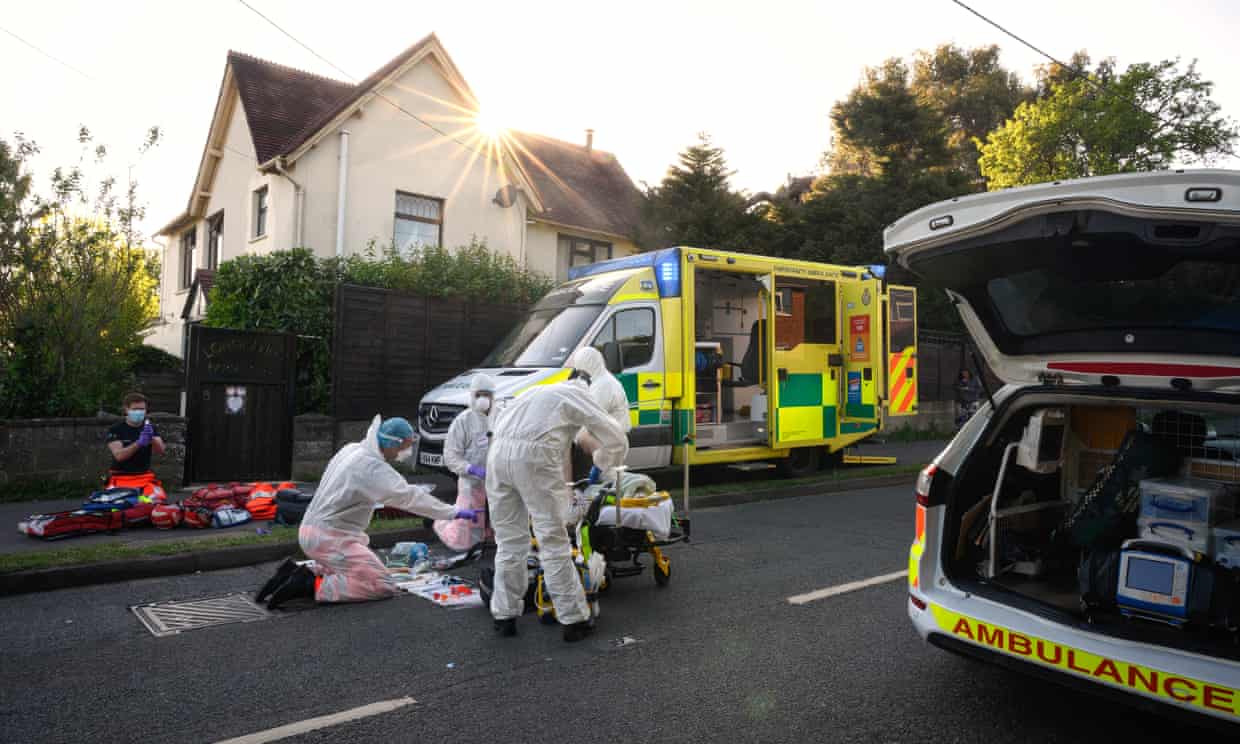
My working week
My working week: 'If I take a patient to hospital, it could save them. But it might kill them'
As a paramedic I’m working harder than ever, and constantly double-guessing whether to risk exposing patients to Covid-19
by Lucy AndersonMonday
The first two patients of the night are likely Covid-19 cases. I don’t have the answers people want: I don’t know if you have it, I don’t know if your brother will die. We don’t have guidance about which patients to take to hospital and which are safe to manage at home, we don’t know who the hospital staff are looking after, we don’t know how many beds are left.
Thankfully we have enough personal protective equipment (PPE) on our vehicle. Whether it’s adequate or the right type, however, is up for debate. Patients are very understanding of us arriving in masks, goggles, aprons and gloves – as if having one of the worst days of your life isn’t bad enough, here we are arriving with a physical barrier where you can’t see my expressions or lip-read what I say. It feels so alienating.
Tuesday
Another night spent donning and doffing PPE and apologising to patients for it. I’m constantly second-guessing myself as to whether people need to go to hospital or not. I could make a choice that makes a patient better. I could make a choice that kills them.
Hospitals are working out how to handle the different zones – those for Covid patients and ones for everyone else – but this will probably change soon. I need to remember every hospital is different though, otherwise I could endanger other people by taking possible cases to the “clean” zone or vice versa.
Wednesday
Rest day today. I slept in far too late to readjust my body clock back to a normal pattern but I was exhausted. I’m worried about my family, my boyfriend who is also a paramedic, my best friend who works on intensive care, my colleagues and my friends. I can’t face food; I have no appetite.
Thursday
Online training day with work. I manage to squeeze in a run. Clapping for the NHS at 8pm always makes me emotional. My housemate cooks dinner; it’s my only meal of the day.
Friday
I finally get fitted for the FFP3 masks, which means I can attend cardiac arrest incidents and protect myself at the same time. We take two elderly patients to hospital today but family are not allowed to escort or visit. It’s heartbreaking having to tell them.
I go for a walk to clear my head after work.
Saturday
I ork with the out-of-hours GP to keep an elderly patient who is likely to be Covid-19 positive at home today, but on a palliative pathway. It’s a difficult conversation to have with the patient and her daughter but they understand. She reminds me of my grandma, who died last week. She didn’t have coronavirus , but she was in hospital and no one could visit her. Thankfully, a nurse was with her, holding her hand as she took her final breaths.
On to the next patient, someone who “just needed some reassurance” as he feels a bit under the weather. He’d gone through the initial telephone triage, complaining of general lethargy and coronavirus symptoms before we arrived, but it was my assessment that he didn’t need to go to hospital at this time.
Sunday
Attend a public cardiac arrest in the street today, in the blazing sun and wearing full PPE – masks, suits, goggles, visors and gloves. We struggle to hear each other, we are all sweating and know we are on full display to the public. Fortunately, it is a good outcome for the patient who is taken to hospital. We drop them off at the red zone where all potential Covid-19 patients are taken as we have no way of knowing whether they have symptoms or not. It’s very rare for out-of-hospital cardiac arrest patients to make it to hospital so this is a great result.
My brain is working much harder now than it ever has done, even though we’re attending fewer patients. I have worked 52 hours this week, plus the online training day. I’m barely eating. The one thing going round and round my head: “I wonder if today will be the day I catch it?”
If you would like to contribute to our My working week series about your job in public services, get in touch by emailing sarah.johnson@theguardian.com